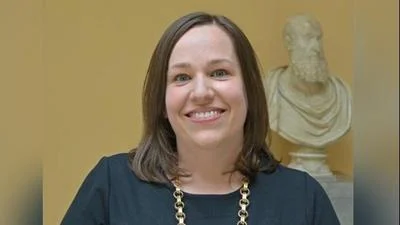Dr. Jamie Oberman | Frederick Breathe Free
Dr. Jamie Oberman | Frederick Breathe Free
- Sinusitis affects 28.9 million adults in the U.S.
- Common colds can trigger sinusitis.
- ENT specialists provide minimally invasive treatments that can fix sinusitis and the other complications that can result from it.
"It usually starts with a virus, which almost everyone gets, and then it can evolve into bacterial secondary recurrent infections as well as chronic infections, which have specific criteria that you have to meet; but it's a significant problem that affects the population and quality of life as a result," Dr. Oberman told Baltimore City Wire. "It doesn't discriminate as far as age or race; it affects everyone."
Chronic sinusitis affects 28.9 million American adults, or 11% of the adult population, according to the Centers for Disease Control and Prevention (CDC). The condition is responsible for 2.7 million doctor visits and more than 230,000 emergency room visits annually.
Sinusitis may result from viral, bacterial, fungal, or allergic factors. When symptoms persist for a period exceeding three months, it is classified as chronic sinusitis, according to Merck Manual. Symptoms of sinusitis include yellow or green nasal discharge, facial pressure and discomfort, nasal congestion, halitosis, nocturnal mucus expectoration, and occasionally the occurrence of fever and chills.
Nasal inflammation, which is another term for sinusitis, involves the inflammation or swelling of the sinus lining, according to the American Sinus Institute. The Institute notes that this condition can obstruct air passages, leading to increased mucus production and the potential for infection. Nasal inflammation is a relatively common issue, often triggered by something as simple as the common cold. Additionally, allergic rhinitis, which involves swelling of the nasal lining, can contribute to the condition. The Institute mentions that another possible cause of nasal inflammation is a deviated septum or a structural shift within the nasal cavity, which can also initiate this condition.
With Halloween coming up, sinusitis sufferers are urged to take extra care in order to avoid extra complications that can result from increased human contact, such as the common cold. Luckily, ENT specialists provide minimally invasive treatment options that can treat sinusitis, so patients need not suffer from these issues. One of these treatments is a newer procedure called balloon sinuplasty. According to Web MD, the procedure consists of the physician inserting a tube through your nostril with a small balloon affixed to one end. The balloon is maneuvered to the obstructed region within the nasal passages and then expanded. This procedure aids in opening up the passage, promoting improved sinus drainage, and relieving congestion. Patients generally can return to their daily activities as early as 24 hours after undergoing the procedure.




 Alerts Sign-up
Alerts Sign-up